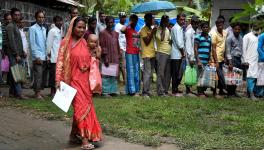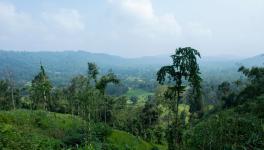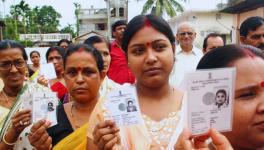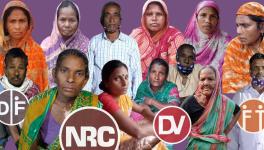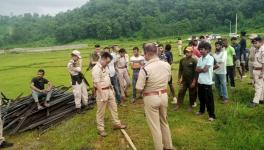The Conflicting Views on Minority Status in Assam
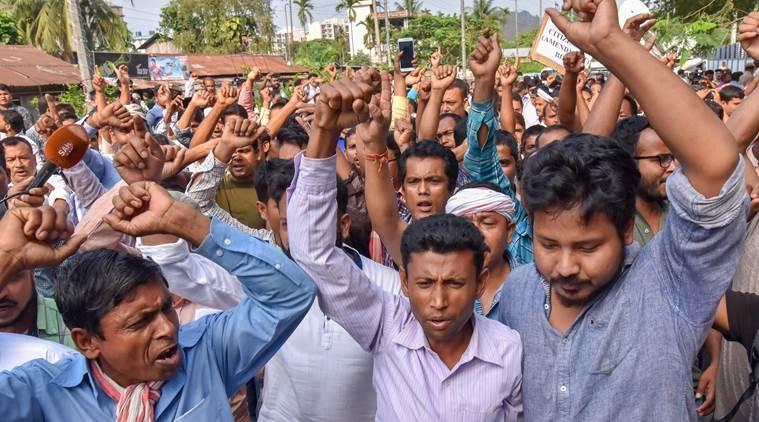
Picture for Representational Purpose Only
With just three days left before the final draft of the National Register of Citizens (NRC) is published in Assam, there appears to be a joint clamour against the Citizenship Amendment Bill, 2016. The Indigenous Forum Assam has appealed to the United Nations Human Rights Council to exert pressure on the Union Government to stop the passage of the Bill. The Bill would ease the process for non-Muslim undocumented migrants from Afghanistan, Pakistan and Bangladesh to obtain Indian citizenship. The issue, as put forth by the forum, has not arisen out of hatred for any community but rather, to avoid having the Assamese people become a powerless minority in their homeland.
Read More: Refugee, Immigrant or Citizen?
The Special Rapporteurs from the United Nations Office of the High Commissioner for Human Rights had previously written to the Minister of External Affairs, Sushma Swaraj on the issues arising out of the NRC and the Citizenship Bill. The letter dated June 11, 2018, questioned the Government of India on how the NRC process and the Citizenship Bill would square with India's international commitments.
The international documents referred to were:
- The International Convention on the Elimination of All Forms of Racial Discrimination (ICERD), ratified by India on 3 Dec 1968.
- United Nations General Assembly Declaration on the Elimination of All Forms of Intolerance and of Discrimination based on Religion and Belief of 1981.
- The International Covenant on Civil and Political Rights, ratified by India on 10 April 1979.
- The United Nations 1992 Declaration on the Rights of Persons Belonging to National or Ethnic, Religious and Linguistic Minorities.
The content of the Special Rapporteurs' letter questioned the government on the fate of those whose names would be left out of the NRC. The focus was understandably on the population of Bengali-speaking Muslims. However, the interesting point here is on perception. The Indigenous Forum Assam while requesting the United Nations' assistance on the Citizenship Bill issue has not spoken on the NRC issue. This represents two different perceptions of 'minority status'. The view taken by the Special Rapporteurs concerns the Bengali-speaking Muslims' minority status in Assam, whereas the Indigenous Forum Assam views the Assamese people as a minority vis-à-vis the larger population of India.
Read More: Assam: Fundamental Rights and the NRC
Taking the Rapporteurs' view on minority status, Muslims in Assam are indeed a minority, if one considers the 2011 Census data Muslims in Assam represent the single largest minority community. But the data does not include language alongside religion, therefore the number of Bengali-speaking Muslims is questionable. However, when one considers the population of Muslims in West Bengal, a predominantly Bengali-speaking state, their numbers tend to be a little over the non-Muslim population of Assam. Whether this is the rationale for the Indigenous Forum Assam's silence on the NRC is not certain, neither does it justify the predictable fallout of the exercise. However, considering the statements from the forum, the modern Assamese identity appears to be predicated on the idea that the Assamese people will be a minority in India but a powerful majority in Assam. In this line of thinking, being a powerless majority in Assam is as galling as the thought of being reduced to a powerless minority in the state. In a nutshell, this is why the NRC has been welcomed but the Citizenship Bill opposed.
Read More: Adoption of the Citizenship Bill Will Turn Assam into Bangladesh, Says AIUDF
However, with the manner in which the NRC process has been unfolding, the government of Assam is evidently fearful of pandemonium breaking loose when the final draft is published on the 30thof this month. The police have been keeping a close watch on all signs of social tension and are preparing to be deployed in large numbers on the date of publication. This, of course, mirrors the publication of the first draft, wherein the expected violence did not occur. What the undeniable fallout of the exercise is that there will be a significant population whose citizenship status will be unknown.
Read More: Assam NRC's Real Test Will Begin Once it's Complete
The disenfranchisement which the Special Rapporteurs' letter refers to is the inevitable outcome of India's own policy failures. Firstly, the issue of 'outsiders' – particularly of Bengali origin – can be seen in the Constituent Assembly Debates. Thus, one cannot argue that it is a recently manufactured issue. Secondly, the linguistic agitations in Assam in the decades following Indian independence were predicated on the real or perceived discriminatory attitude of a predominantly Bengali origin bureaucratic administration. Thirdly, the inability of the of the Union Government despite repeated agitations and even militant activity to adequately deal with the Assamese people's fears in a meaningful manner has added to this sense of insecurity. Finally, the lack of any repatriation treaty following the Indira-Mujib pact has added to this perception of a 'demographic invasion'.
The NRC is sadly a case of waking up too late. Had the Union Government acted on the issue right when its seeds were sown, the crises that followed in Assam, and the crisis about to occur could have been avoided. The proposal which is most likely to become a reality – residence and work permits in lieu of citizenship – could have evolved from a treaty on transit between India and Bangladesh. That nothing has occurred on this front, and that Bangladesh is unlikely to accept any move to deport those whose names are not on the NRC, the world will have to wait and see what happens after June 30.
Get the latest reports & analysis with people's perspective on Protests, movements & deep analytical videos, discussions of the current affairs in your Telegram app. Subscribe to NewsClick's Telegram channel & get Real-Time updates on stories, as they get published on our website.









